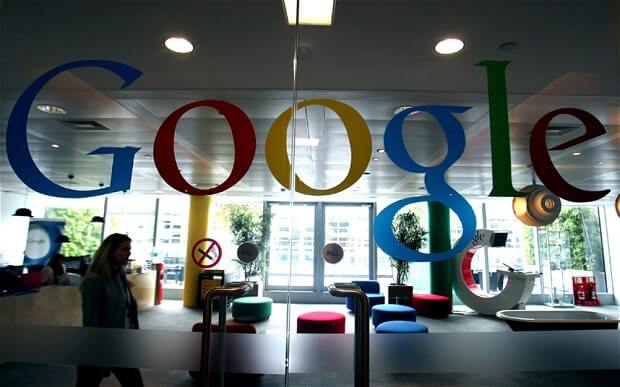Google and Grand Narratives
Reflections on how classical education is not, ultimately, an escape from the modern world

This past week, an older friend of mine phoned for grammar help: an exegetical debate hinging on verb tense had arisen in the Bible study he leads for younger men. And, while my friend had prepared thoroughly in his usual way— by extensive reading in the theological library he’d amassed over around fifty years, now lining one wall of his den—a younger member of the study was pressing an objection with pages of articles printed from a Google search. My friend could clearly articulate the grammatical explanation that would dissolve the objection, but he could not find it precisely laid out in any of his books, and thus he lacked the force of authority. “It’s this way all the time,” he groaned: “I read all the books, but I can’t find these exact answers in them. Then the younger folks get on Google and find out just what they want to know in two minutes!”
That complaint is telling, for looming even larger than the generational gap in my friend’s predicament is the gap in concepts of knowing. For my friend, knowledge involves a grasp of background, influences, etymology, interpretation—the emphases of his books. For the younger man, however, knowledge means the definitive answer to a specific question—the essence of Google.
In his disconcerting 2008 article “Is Google Making Us Stupid?: What the Internet is Doing to Our Brains,” technology theorist Nicholas Carr writes of Google that
The company has declared that its mission is “to organize the world’s information and make it universally accessible and useful.” It seeks to develop “the perfect search engine,” which it defines as something that “understands exactly what you mean and gives you back exactly what you want.” In Google’s view, information is a kind of commodity, a utilitarian resource that can be mined and processed with industrial efficiency. The more pieces of information we can “access” and the faster we can extract their gist, the more productive we become as thinkers.
Carr goes on to synthesize anecdotal, sociological, and neurological sources into a description of how Internet use restructures the human brain and changes, not just our mental habits, but our mental capacities for different kinds of thinking. It’s an explanation that ought to be read and pondered by every Net user.
But a point that could be added to Carr’s analysis is one foregrounded in my friend’s experience. In contrast to the meandering, holistic, and often imprecise sort of understanding that grows from extensive reading, Google gives users instant access to specific information and so enables them to find seemingly authoritative, minutely detailed answers to the most obscure questions. Books might slowly make us educated, but Google immediately makes us specialists—masters of the precise question and unquestionable answer.
Specialization drives the modern age; our economies, bureaucracies, assessment, agriculture, marketing, and managements literally could not function without it. Furthermore, specialization captures the ethos of this age. Its origins are in production and consumption, its enactment is both individualist and collectivist, and its essence is postmodern, for it requires the renunciation of metanarratives in favor of the minute account. Rather than fostering knowledge that’s contextual (narrative), it provides knowledge that’s precise (informative). At the popular level, it replaces the fifty-year library with an afternoon of Googling.
And this, perhaps even more than the brain’s neurological restructuring, should arouse the concern of classical educators. If they want to give anything to their students, classical educators want to impart a sense of the world as an integrated whole. They want to teach the disciplines as varied approaches to one Truth. They want to bridge the chasm between past and present. They want to help students re-braid the unravelled strands of truth, goodness, beauty. They want students to recognize the deep dignity and delight of their role as characters in the story of all times. And this requires broad knowledge, sustained thought, forays as irrelevant as Herodotus’s tangents and as involved as Homer’s similes—it needs a metanarrative, not a search engine: the grand tale told by classical education’s eye for historical development joined to Christianity’s eschatological telos.
So should we boycott Google? Should we regard our classical schools and homeschools as alternate realities to the ones available on our laptops, phones, and iPads, keeping our students secure in the former? We could debate whether such a course is desirable, but must probably acknowledge it is not possible.
And so our task takes a new trajectory. Classical education is not an alternative to or escape from the modern world, but respite from and preparation for it. We must teach it accordingly. In contrast to the literature majors that Carr describes who eventually quit reading extended works, we and our students can cultivate habits that have little if any direct connection to career-building and Web-surfing. In contrast to the Googler who passively accepts information without broader context, we and our students can assimilate the grand narrative into our thinking so thoroughly that even our Google search results get involuntarily placed within it. In contrast to those who use technology unthinkingly, we can seek to understand this medium well in order to use it wisely (Alan Jacobs’s recent posting of 79 Theses on Technology for Disputation provides an excellent starting point).
Perhaps classical education can help us discover that the library and Google are both wondrous tools, and show us how, without trading one for the other, to bridge the gap between them.

Lindsey Brigham Knott
Lindsey Knott relishes the chance to learn literature, composition, rhetoric, and logic alongside her students at a classical school in her North Florida hometown. She and her husband Alex keep a home filled with books, instruments, and good company.










